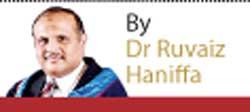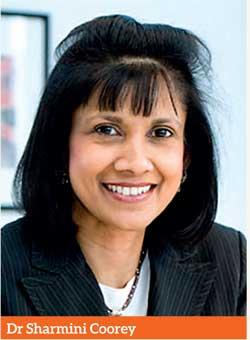Reply To:
Name - Reply Comment
Are we as a nation ready for democracy as a means towards economic progress or is democracy in Sri Lanka an endpoint in sustaining a dysfunctional state?
 Before my reflection is read I wish to inform the reader that I write as a layperson, with no formal training or experience on the subject other than having to live through the reality of the consequences of the topic the oration covers on a daily basis which is becoming exceedingly difficult to endure.
Before my reflection is read I wish to inform the reader that I write as a layperson, with no formal training or experience on the subject other than having to live through the reality of the consequences of the topic the oration covers on a daily basis which is becoming exceedingly difficult to endure.
As such I see myself as an expert on the topic from the perspective of suffering the outcomes of the content deliberated on by the esteemed orator.
 A brilliant oration in terms of the presented evidence and attempting to use the opportunity for GRIPs (Getting Research In to Practice).
A brilliant oration in terms of the presented evidence and attempting to use the opportunity for GRIPs (Getting Research In to Practice).
The historical and contemporary democratic political backdrop which influences the decision-making process and hence governance was shown to be dysfunctional in an evidence-based manner. In other words, no lessons for good governance have been learned by Sri Lankan bureaucrats and the Sri Lankan voters thus far (since independence which loosely coincides with the establishment of the CBSL)
The question which I feel should have followed could have been ‘What is the likelihood/probability of this prevalent political and bureaucratic status quo changing and the factors which are hindering this change?
The issue of ‘Who benefits from this dysfunctional system was touched on briefly. (“A few benefit from it).
I would have loved to see in an evidence-based manner how the ‘few’ indeed benefit in terms of political, financial and other terms. This would have helped us identify the ‘few’ in terms of characteristics at the very least.
This in turn would have facilitated communication of such information to the public for their democratic consideration if and when it matters. (That is if and when elections are held to allow people to participate in the governance process for better or worse)
The benefits of the majority of this dysfunctional system were touched on. That is to say, the ‘culture of entitlement’ prevalent in the Sri Lankan majority was highlighted in a manner to show how unsustainable the accrued and current dysfunctionality was and is.
The orator also warned of the dire consequences of continuing this ‘culture of entitlement’ without serious reforms, particularly from the triple parameters of good governance, genuine transparency and accountability in reality.
However, the link between the few and the majority who benefit from the historic and prevalent dysfunctionality was not very clear. The factors which link the few and majority who benefit from the dysfunctional system would have shed light on how to manage this link to possibly reduce the dysfunctionality over time and one day eliminate it.
The way forward in terms of the theme of the oration from a theoretical perspective was very clear. I do understand that the orator’s expertise ends at that point.
But I am sure many of us who listened to the oration on YouTube and read the summary of the text in The Daily Mirror had the following follow-up question for the past current and future bureaucrats and politicians of Sri Lanka -
1. Why have/are we not and perhaps will not act on the sound economic evidence presented?
2. What has/is and will prevent acting on the evidence presented in order not to go the lender of last resort for the 18th time?
3. Could the public of Sri Lanka (More accurately the voters) be convinced by their future elected representatives (From all political hues and shades) through an economic model/ programme of a finite period that we will not go to the IMF for the 18th time?
And finally
4. Are we as a nation ready for democracy as a means towards economic progress or is democracy in Sri Lanka an endpoint in sustaining a dysfunctional state?
I congratulate and thank the orator for using the opportunity to highlight the issues openly and transparently to enable us to better understand and meaningfully contribute towards solving the problems we are enduring as citizens of Sri Lanka through a democratic process if and when we are hopeful given the opportunity to do so most importantly in a free and fair manner.
The writer is a Specialist Family Physician at the Department of Family Medicine, Faculty of Medicine, University of Colombo and Past President of the Sri Lanka Medical Association